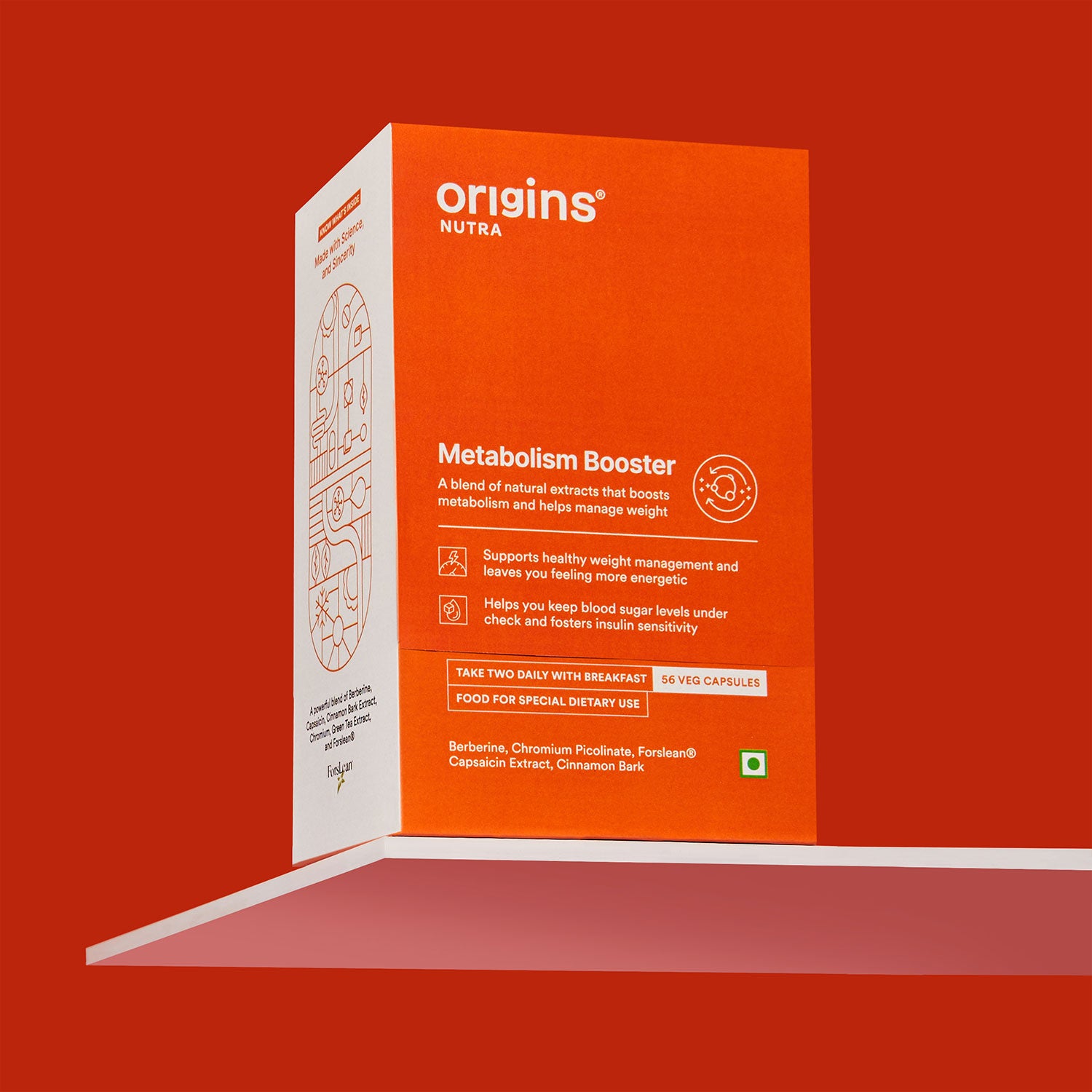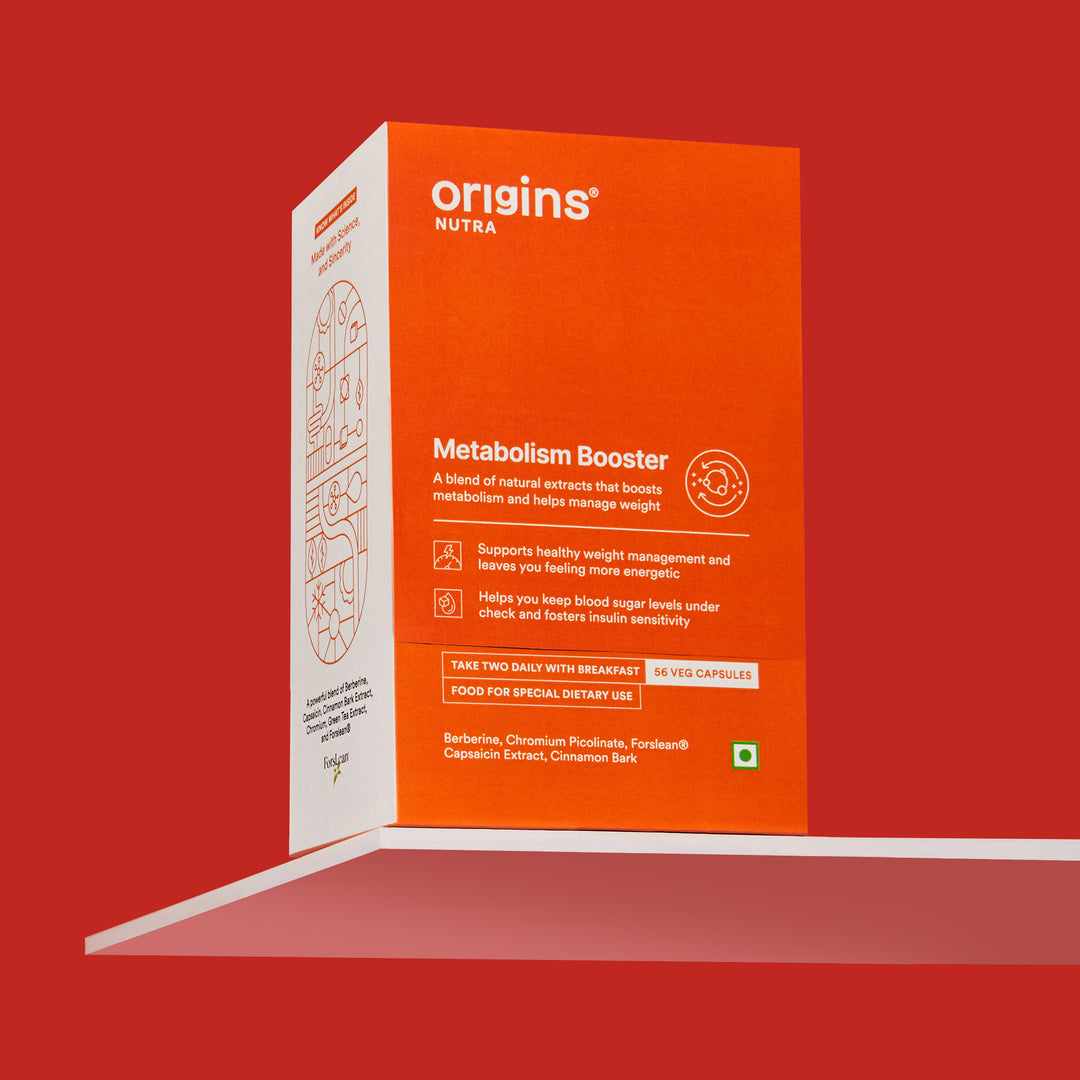Importance Of Metabolic Health For Healthy Living
What Is Metabolic Health?
Metabolic health is the foundation of how your body functions daily.
It involves how efficiently you convert food into energy, balance blood sugar levels, manage weight, control cravings, and regulate fat deposition, all of which contribute to overall metabolic health.
However, many people don't realize their metabolic health is compromised until symptoms appear.
The Silent Crisis: Poor Metabolic Health
Research shows that nearly 1 in 4 adults globally are affected by metabolic syndrome, a cluster of conditions that increase the risk of heart disease, diabetes, and stroke.
Poor metabolic health is quietly becoming one of the biggest health challenges of our time.
The recent pandemic further highlighted how crucial internal health is for resilience and longevity.
Why You Should Care About Your Metabolic Health
Poor metabolic health can manifest in subtle ways long before serious diseases develop.
Warning signs include:
-
Persistent fatigue and low energy
-
Stubborn belly fat
-
Insulin resistance and high blood sugar
-
Elevated cholesterol levels
-
Hormonal imbalances (like PCOS or thyroid dysfunction)
Left unchecked, these issues can escalate into chronic conditions like type 2 diabetes, cardiovascular disease, and even cognitive decline.
What Affects Your Metabolism? (It’s Not Just Calories)
Metabolic health isn't just about eating less and exercising more.
Several hidden disruptors can slow down your metabolism, such as:
-
Highly processed foods packed with sugars and trans fats
-
Sedentary lifestyle and lack of movement
-
Poor sleep quality and disrupted circadian rhythms
-
Gut microbiome imbalances, weakening digestion, and immunity
-
Chronic inflammation and oxidative stress damage cells
Over time, these factors strain your body's ability to efficiently manage energy, fat storage, and hormonal balance.
How to Improve Metabolic Health Naturally
The good news?
You can support a healthy metabolism through small, consistent lifestyle changes. Here’s how:
1. Focus on Whole, Real Foods
Eating for metabolic health means:
-
Fresh fruits and vegetables
-
Healthy fats like olive oil, avocados, nuts, and seeds
-
Lean proteins and fiber-rich whole grains
-
Prebiotic and probiotic foods to nourish gut health
Avoid refined sugars and ultra-processed foods, which spike blood sugar and inflame the gut.
2. Move Your Body Daily
Physical activity revs up your metabolism naturally.
Aim for a balanced routine of:
-
Daily walks
-
Strength training sessions
-
High-intensity interval training (HIIT) for metabolic boosts
Tip: Consistency matters more than intensity. Even 20–30 minutes daily can transform your metabolic health over time.
3. Prioritize Quality Sleep
Sleep isn’t just rest; it’s metabolic recovery time.
Poor sleep disrupts hunger hormones (ghrelin and leptin) and worsens insulin sensitivity.
To support metabolism:
-
Aim for 7–9 hours of uninterrupted sleep
-
Keep screens away 1–2 hours before bed
-
Maintain a regular sleep-wake schedule
4. Maintain a Healthy Weight
Excess belly fat increases inflammation and hormonal imbalance, slowing down metabolism.
Focus on gradual, sustainable fat loss through mindful eating, strength-building exercises, and stress management.
Crash dieting and overexercising often backfire by damaging your metabolism further.
5. Consider Metabolic Health Supplements
Lifestyle is the cornerstone, but certain natural supplements can offer additional support.
For example, supplements containing ingredients like Berberine activate AMPK (your body's internal energy sensor), promoting:
-
Better insulin sensitivity
-
Enhanced fat metabolism ( helping the body use fat as a source of energy)
-
Healthy cholesterol levels
-
Assistance in managing weight
Always consult a healthcare professional before adding new supplements to your regimen.

FAQs About Metabolic Health
-
What are the symptoms of poor metabolic health?
Common symptoms include low energy, weight gain (especially around the belly), sugar cravings, frequent infections, hormonal issues, and difficulty losing weight.
-
Can you reverse poor metabolic health naturally?
Yes! Through consistent lifestyle changes — clean eating, regular exercise, good sleep, gut health support, and stress reduction — you can significantly improve your metabolism.
-
How fast can metabolic health improve?
Some improvements (like better energy and digestion) can be noticed within weeks. However, reversing deeper metabolic imbalances may take 3–6 months or longer, depending on the individual.
Final Thoughts: Take Control of Your Metabolic Health
Metabolic health isn't just about weight loss or blood sugar control, it's about thriving from the inside out.
When your metabolism is strong, you feel energized, resilient, and balanced.
Start small:
Nourish your body, move intentionally, prioritize deep sleep, and explore safe, natural supplements to support your journey.
A healthy metabolism is the gateway to a longer, stronger, and more vibrant life.
Take the first step today!
































